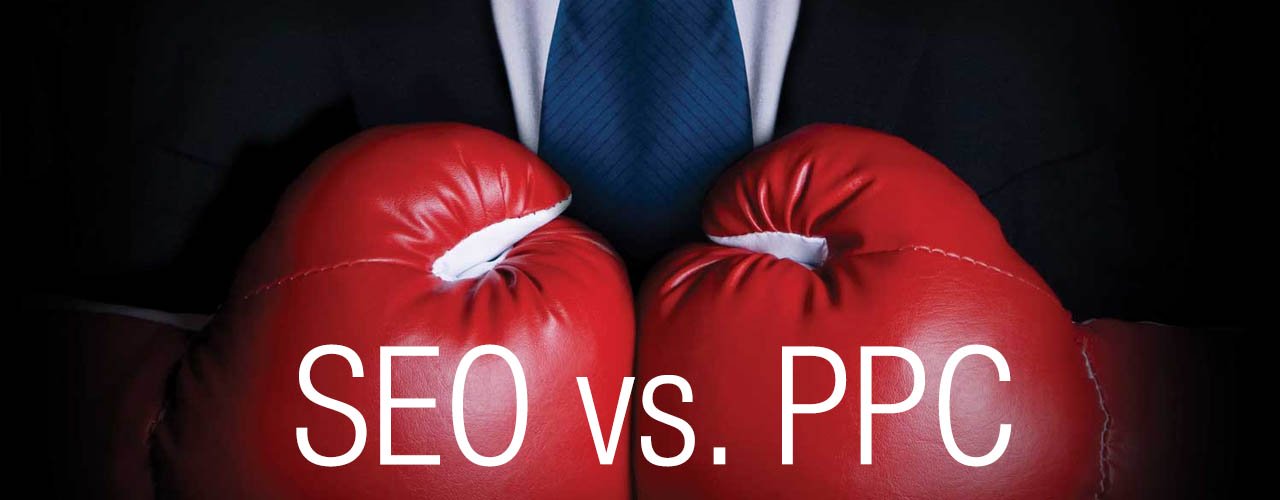Search Engine Marketing can be confusing to the average business owner. Your job, after all, is to be an expert in your chosen field, not to be an expert in the field of SEM. Keeping up with all the latest marketing trends, buzzwords, and changes is a full-time job in itself — one of the many reasons why a lot of companies hire out their SEM work to professionals.
But in order to even decide who to hire — let alone do it yourself — you need to know enough about SEM to determine which aspects you should be focusing on for your business. You have options. The two main modes for targeting clients who are searching for your services online are through either paid search listings or organic search listings.
Organic Listings and Search Engine Optimization (SEO)
When you hire a company to work on your Search Engine Optimization, referred to as SEO, you are hiring a company to make you more visible to Google, so that when somebody puts in a search for your industry, your website comes up higher (hopefully the highest!) on the organic search list.
With all the different websites out there for each industry, Google has to have some methodology to decide which ones deserve to be on the first page of the search results. Google’s bots regularly crawl the web, searching for several key factors to help them determine page rank which can be narrowed down to two main areas: relevancy and domain authority. Although Google uses a variable system of indicators, including links from high authority sites and website functionality, to determine these factors, generally speaking they are looking for websites that are both relevant and popular.
Optimization Tactics
The best way to improve your organic listings is simply to give Google what it wants to give its users: the best results to their query. You need a website that is easy to navigate, a business that has good rapport with its clients, and insightful, relevant content.
SEO strategy is often different for each industry and location. One of most important things is website infrastructure. Is your website keyed, meaning does it contain keywords that can be found by the bots? This is something that you should also keep in mind when having a website built — make sure that whoever is undertaking the task is aware of the necessary attributes for high SEO rankings. That means you, do-it-yourself-ers! And of course, good website structure alone will get you nowhere — visibility remains key.
After ensuring that the website functions appropriately, another common strategy involves beefing up the site’s written content. Blog posts, descriptions, bios, and anything must contain keywords and links to authoritative links to high domain websites that Google’s bots can pick up on, and they must do so in a way that appears natural and provides pertinent information to its readers.
Finally, any good SEO strategy must involve boosting popularity in a way that Google can recognize. That means mentions on other websites, social media likes, website traffic, and consumer reviews. Essentially, you must do right by your clients, and then get them to tell people about it online — which these days, isn’t too difficult. Setting up a Google+ page for your business is one good way to do this, as well as using other forms of social media and encouraging satisfied clients to write reviews on your Business Association or Better business Bureau page.
Keep in mind that SEO is a constantly changing field, so if you have questions about moving forward with SEO or about which specific strategies would work best for your business, you’ll definitely need to consult a search engine optimization company.
Why or Why Not?
With SEO, the question isn’t really about whether or not you need it, but about when you should start doing it and how you should start the process. Although it requires a larger payout initially and often takes 3-12 months to show results, it’s valuable because organic rankings provide the biggest Return On Investment (ROI) long-term. If you show up top on the organic search list, you’ll appear to be highly credible in your field, and you’ll net a higher volume of conversions in the long run. Also, you won’t have to pay each time someone goes to your website.
For some lucky individuals, your business may already be at the top of the page. If that’s the case, focus your efforts on keeping yourself there. It wouldn’t hurt to check with a specialist if you’re concerned about the stability of your placement, or even if you’re not, just to make sure you’re doing everything you can to remain in that spot. It’s easier maintain than to build, and Google regularly crawls the web and recalibrates the rankings, so your spot on top is never a sure thing.
Paid Search and Pay-Per-Click (PPC)
So, what can you do right now to get on the first page of Google? In a lot of industries, it’s difficult to compete with the organic ranking of larger companies with well-established websites. SEO, as mentioned above, can take time. Here’s where paid search advertising comes in.
Paying per click isn’t as bad as it sounds. Basically, you choose keywords that people will be using to search for your product and link them to ads you come up with on your own. Your ad comes up every time someone types in a keyword, and only pay when someone clicks on your ad. The Cost-Per-Click (CPC) is determined by the number of people bidding for that keyword, how much they’re offering to pay for it and how well your ads/landing pages are written. When your pre-determined daily budget is used up, your ad gets taken down.
You are afforded quite a bit of control with PPC — you get to write your own ads, which means you can use rhetorical tools to appeal to searchers, you can choose the keywords that will give you the biggest ROI, and you can advertise either on the Display Network or on the Search Network. The Display Network allows you to use photos to advertise your products, run banner ads on other websites, and use retargetingstrategies to net more conversions.
Just like SEO, there is a lot of strategy involved in building this type of campaign. Since there are so many options and variables, it becomes quite technical. You need to keep track of what’s going on with the campaign so you know how to make it stronger and better, and so you can prevent wasting money on keywords that aren’t converting.
But the bottom line is that unlike SEO, the effect is immediate. After the campaign is built, your ad shows up immediately on the search engines, putting you that much closer to a positive ROI. With Pay-Per-Click, the payout and and the return are broken down to smaller increments and the timeframe is smaller, making it more palatable for businesses with small advertising budgets, but still effective for those with successful long-term campaigns.
PPC or SEO?
You should be using both methods as your budget allows. PPC is a great way to see results quickly, and a great way to grow your business. When put together correctly, it’s like a formula to gain ROI that has the benefit of being highly measurable and highly customizable. SEO, on the other hand, offers the highest ROI long-term, because if you get to the first page, eventually you’ll be paying nothing while still getting the most amount of conversions possible online.
My suggestion? PPC is for sales today and SEO is for sales tomorrow. As a business, you need both to compete, survive and thrive. Eventually, you’ll be taking over the world.



